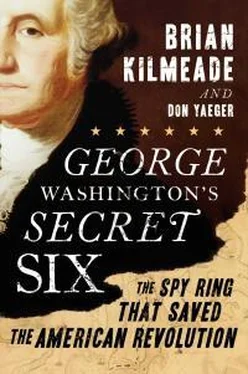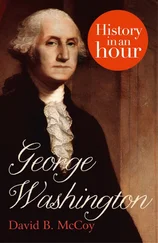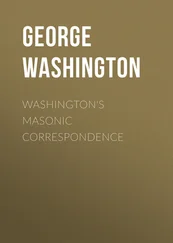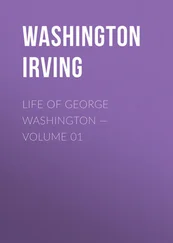I have no doubt but that General Howe will still make an attempt upon Philadelphia this Winter. I see nothing to oppose him a fortnight hence, as the time of all the Troops, except those of Virginia (reduced almost to nothing,) and Smallwood’s Regiment of Maryland, (equally as bad) will expire in less than that time. In a word my dear Sir, if every nerve is not strain’d to recruit the New Army with all possible expedition, I think the game is pretty near up. . . .
You can form no Idea of the perplexity of my Situation. No Man, I believe, ever had a greater choice of difficulties and less means to extricate himself from them. However under a full persuasion of the justice of our Cause I cannot but think the prospect will brighten, although for a wise purpose it is, at present hid under a cloud entertain an Idea that it will finally sink tho’ it may remain for some time under a Cloud.
Washington had smiled a little, in spite of himself, as he closed the letter with greetings sent to his sister-in-law and her children. Yes, the past few months had been bleak and the future looked like it would be very much the same, but Washington clung to that shred of hope with which he had reassured his brother. Though the Patriot cause was cloaked by a cloud, his cautious optimism was rooted in something more solid than just a desperate hope that another miracle may yet come to his aid. Washington had a secret.
John Honeyman, a Scots-Irish immigrant who had served the British Crown faithfully during the French and Indian War, was now plying his trade as a weaver and butcher in Trenton, supplying the Hessian troops and making his allegiance to the Crown common knowledge. While wandering dangerously close to the American lines one day, Honeyman had been captured and questioned by none other than General Washington himself. A few days later, shortly after Washington had written to his brothers, Honeyman escaped back to Trenton under the cover of some small disturbance in the camp. Once again behind Hessian lines, he insisted upon an audience with Colonel Johann Rall, informing him of what he had observed while held by the Americans.
“There will be no attack,” Honeyman told Rall. “The American troops are so disheartened and so bedraggled, they have no plans of advancing any time soon.”
The big German laughed at the thought of the upstart colonials wasting away as they tried to put on a brave show: “Wir werden fröhliches Weihnachten schließlich haben!” (We will have a merry Christmas, after all!)
Colonel Rall dismissed the trusted tradesman with a hearty slap on the back, and went to inform his subordinates that they could stand down and commence with the Christmas celebrations. Someone had procured quite a few casks of ale, and they were all eager to toast the birth of the Christ child in roaring fashion even as the church tolled the bells marking Christmas Eve. Meanwhile, Honeyman quickly and quietly gathered his family and retreated eastward to New Brunswick, New Jersey . . . and Washington prepared to strike.
It had all been a beautifully orchestrated setup, from Honeyman’s position in Trenton to his capture, escape, and meeting with Rall. He had been a dedicated British soldier twenty years ago, but now he was Washington’s man. Learning from Hale’s death, the general had reached out to Honeyman earlier that fall, counting on his outstanding credentials from the previous war, unshakable bravery, and unsuspicious occupation to enable him to operate undetected. Sure enough, Honeyman casually questioned and carefully counted the men about the city and offered a full report of it back to Washington from his jail cell following his “capture.” Washington, having personally arranged for the means by which Honeyman could escape, had then asked his agent to plant the false story in Rall’s ear before spiriting himself and his family out of harm’s way when the attack came on the unsuspecting Hessians.
It was a perfect plan that went off without a hitch. Honeyman played his part beautifully, and the Hessian troops, all fighting massive hangovers from their raucous Christmas revelries, were caught completely off guard when the Patriots launched their attack in the wee hours of December 26. The victory was swift, decisive, and crucial for the American cause.
Washington’s espionage success further buoyed him and the troops. But the loss of Long Island and Manhattan still weighed heavily on the general’s mind. He didn’t think the war could be won without recapturing them and, like Trenton, they could not be taken without good, reliable intelligence. Honeyman’s efforts at Trenton had proved the value of a well-placed spy and taught two good lessons: Washington’s spies would have to blend in as Honeyman had (and Hale had not), and they would have to be absolutely convincing in their roles.
Washington would need a collection of agents—a ring of common men and women with unquestionable fidelity and unassuming identities. His first task would be to enlist two key individuals: (1) an officer familiar with the territory and well acquainted with the local families and customs, who could orchestrate the whole enterprise but remain close to Washington’s side, and (2) an agent on the ground who could recruit the other members, preferably a person who was well connected but had largely kept his political opinions to himself throughout the conflict thus far—a man who would not raise suspicions but would rather die than surrender his God-given liberties.
CHAPTER 3 Launching the Ring
In February 1777, Washington wrote to Nathaniel Sackett, a New York merchant, supplier to the Continental Army, and Patriot activist. The short letter got to the heart of the matter immediately. He offered Sackett fifty dollars a month—a generous sum from the cash-strapped American government—to establish a network of spies to learn “the earliest and best intelligence of the designs of the enemy.” Sackett’s efforts, while initially fruitful, collapsed a few months later in a series of unfortunate mishaps and failed missions that yielded few results of the impact Washington was seeking. Finding the right man to lead the New York ring was proving harder than planned.
In the fall of 1777, a year after Nathan Hale’s death, Washington still had no New York spy ring, mostly because the general’s attentions were diverted again from New York to Philadelphia, which the British had recently captured. For the next few months, Washington devoted most of his attention to regaining the City of Brotherly Love and placed the New York intelligence efforts on hold indefinitely.
A MISSION
As 1777 turned into 1778, the tide of the war changed. When Benjamin Franklin’s negotiations in France finally culminated in Louis XVI’s commitment to support the American cause in February 1778, the British strategy had to change. Despite a devastating winter at Valley Forge, the Americans were no longer fighting alone, scraping out victories from sheer luck, pluck, and whatever good fortune Providence threw their way. By June 1778, orders were issued for the British army in Philadelphia to abandon the city and set their sights on strengthening their all-important hold on New York.
Washington and his men prepared to follow suit, packing up the ragtag army to leave Valley Forge. The logistics of moving an army were all-consuming, but Washington was preoccupied with an even more important task—the time had come to focus his full attention on forming his spy network, and nothing would distract him now.
Washington tapped Brigadier General Charles Scott, a rustic man from central Virginia, to serve as his chief of intelligence. It was a logical appointment; Scott was experienced and able, with an impressive record in command. He had distinguished himself as a scout during the French and Indian War and had served alongside Washington for the duration of the Pennsylvania campaign. But despite Scott’s capabilities and qualifications, he was abrasive and unimaginative. Even worse, his knowledge of the topography and waterways of Manhattan and Long Island was severely limited.
Читать дальше












